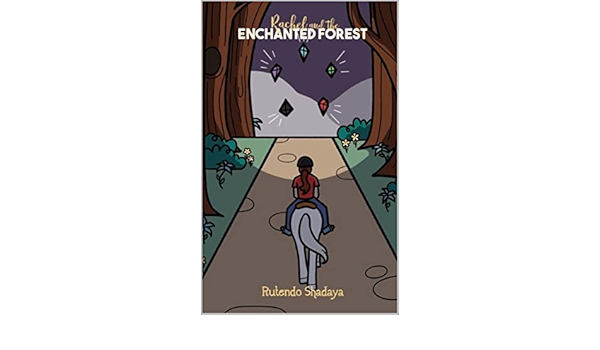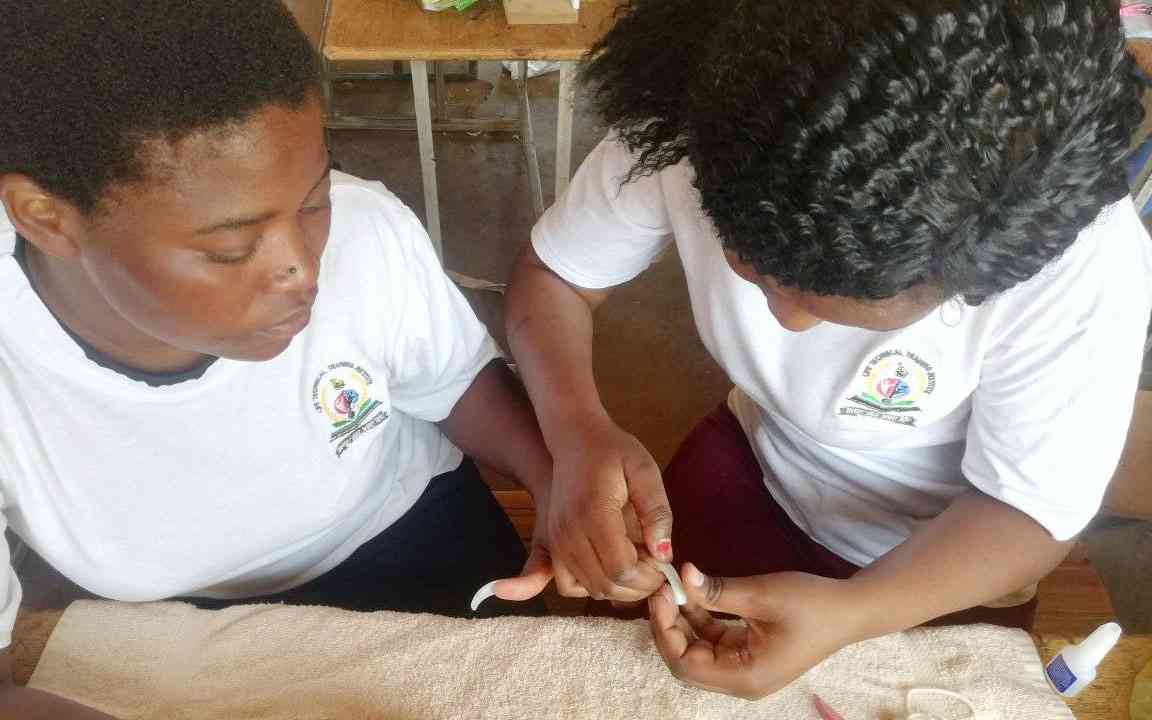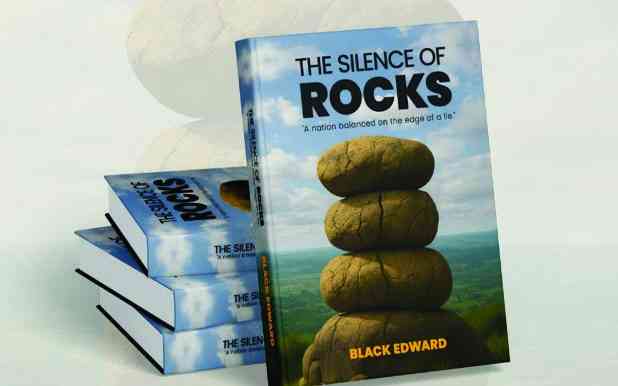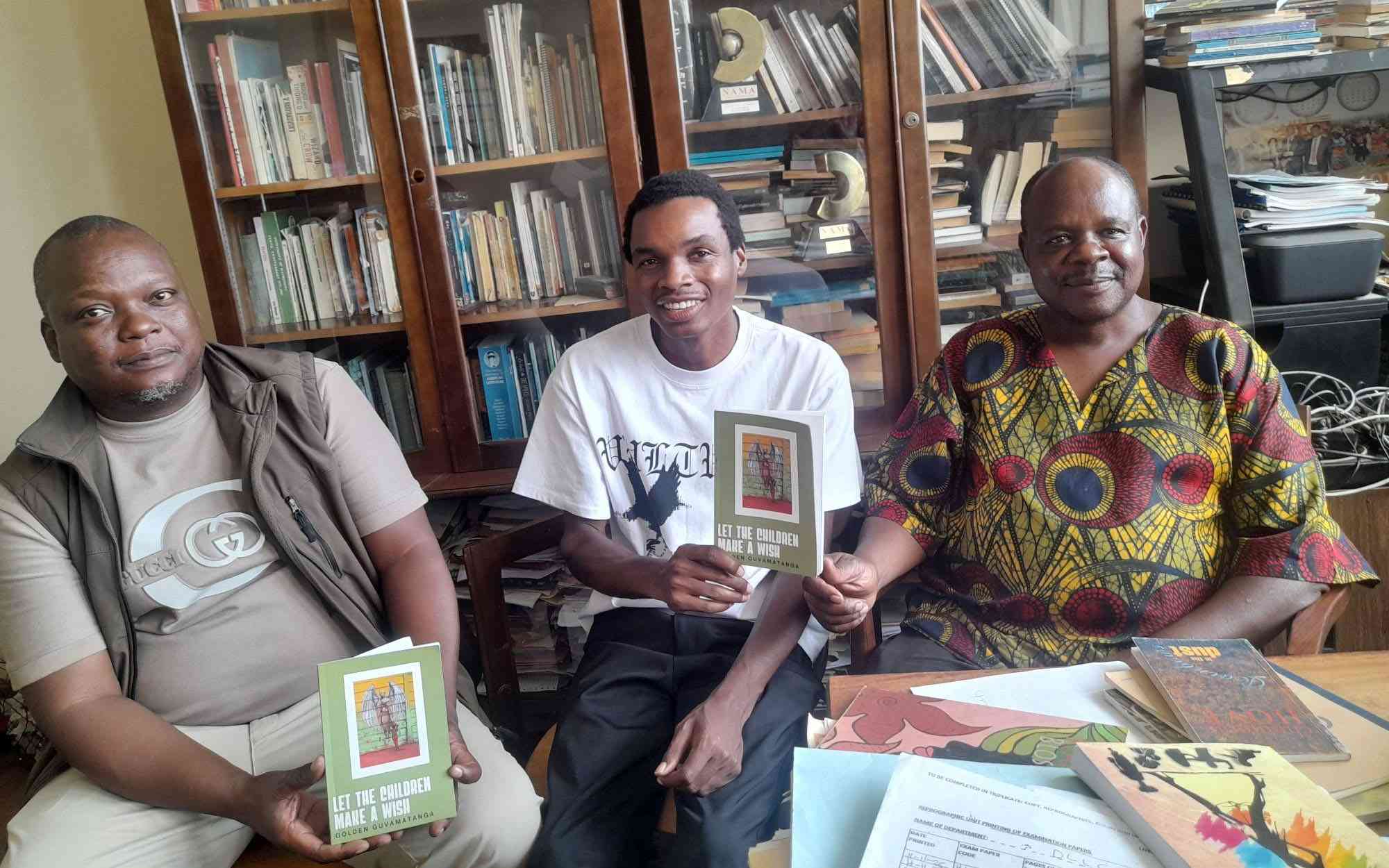
Rutendo Shadaya is a teen New Zealand/Zimbabwean author born in 2008. Her writing journey began at the incredible age of nine! At that very tender age, she decided to write a book as a birthday present for her best friend, Sophie Thompson.
This is how Rutendo came to write Rachel and the Enchanted Forest, published in October 2020 when she was 12, effectively making her a child-writer.
This moving novel is about Rachel, Darling and May who find a magical forest called The Enchanted Forest. Rachel discovers that her grandmother knows about the forest and that she was one of the founders of the Enchanted Forest.
Rachel, May and Darling meet various elves in the forest. One of the elves gave Rachel a necklace that belonged to her grandmother. However, another elf was not happy to see Rachel with the necklace. The elf planned to steal the necklace during the hoverboard race. This book explains how the elves helped Rachel get the necklace back.
Rutendo’s second book, which appeared a couple of years later, in July 2022, is called Rachel and The Chevene Pirates. In this longer novel, Rachel and the enchanted gang go on a mission to recover stolen jewels. On the mission, they face the dangerous Chevene pirates.
Rutendo’s parents migrated from Zimbabwe. Her two books are available through Amazon, she says that she enjoys watching and playing tennis, netball and soccer. In her free time, Rutendo reads books, listens to music and hangs out with friends.
Our book reviewer Memory Chirere (MC) engaged Rutendo Shadaya (RS) in an interview.
Below are excerpts from the interview.
MC: You say that what inspired your first book, when you were nine, was the need to find a present for your friend, Sophie Thompson. Who is Sophie Thompson and where is she right now?
RS: Sophie Thompson is my best friend. We have been good friends for over 10 years. We live in the same town in New Zealand. Sophie has been the one friend, whom I can rely on during difficult times of my life.
MC: You were only nine when you wrote your first book.
RS: I am considerate when buying birthday presents for close friends. When it came to Sophie’s birthday, I knew she and her friends had this book club. It was a club where they would share stories that they had written over the past week. Sophie was also a massive bookworm at the time, and I thought; “Why not surprise Sophie with a book written by me”. I didn’t like writing at the time because it was one of my weaker subjects. But that didn’t stop me, and it pushed me further to complete it.
MC: What are the challenges and joys of writing a book when you are nine?
RS: I didn’t struggle. I didn’t fight much with the writing process, as my brain kept on flowing… with ideas of inspiration. My creativity and determination kept me going with writing. It is a hobby. I spend time writing whenever I am free. One thing, which was a bit difficult, was probably coming up with made-up names of the characters because when readers see them, they have to stick in their heads, not something forgettable.
MC: Why are you keen on tales of adventure?
RS: I like to write something that I could also love to read. Adventure and fantasy books are my favourite type of books to read. I love the thrill and roller-coaster of such stories.
MC: What specific titles were you reading at the time and how are they related to your first book?
RS: Back then, I was reading books like The Land of Stories, David Walliams and Thea Stilon books. These books explore the genres of fantasy and adventure, and I adapt the genres into my book.
MC: You have had your childhood in New Zealand. Can you describe your childhood in greater detail?
RS: My childhood has been great, but I have struggled a bit when it comes to making friends. There weren’t many Africans where I lived, or attended school, so the small community were like the only community representing us Africans in the town, my family lived. There was obviously racism expressed towards me, and my brother which sucks and is something terrible to encounter for anyone. Apart from that, New Zealand offers many opportunities which I am grateful for. Living in a country so advanced for its size is such a privilege. The people here can see the potential in you and help you reach your goals. These people and friends have helped me achieve many milestones at this young age.
MC: Have you ever had the opportunity to listen to our own African/Shona folk tales or read them?
RS: No, not really. I haven’t had the opportunity to read Shona folk tales but I would love to do some time.
MC: I know that you often visit Zimbabwe with your parents. Can you comment particularly about your experience of life, people and places in Zimbabwe, if put against your experiences in New Zealand?
RS: Last December (2023), my family and I visited Zimbabwe. It was the first time in ten years since me and my brother last visited. The cost of travelling is quite expensive, especially during December. I didn’t struggle much with cultural norms because my family often meets up with fellow Zimbabwe families or communities here in New Zealand. Communicating, was a little bit difficult when visiting Kumusha, as my Shona isn’t the best. When it comes to Shona, I can speak basic conversations and greetings at best, but I can understand mostly everything. Apart from economic differences, I don’t think Zimbabwe and New Zealand are much different. The people in both New Zealand and Zimbabwe are generally family oriented. Seeing Victoria Falls, Chinhoyi Caves and Kumusha’s scenery were my highlights of the beauty of Zimbabwe.
MC: Your first book, Rachel and the Enchanted Forest, is about elves. An elf is a spirit of any kind, creature, usually in tiny human form. The notable characteristics of elves were mischief and volatility. They were believed at various times and in various regions to cause diseases in humans and cattle. Is there any special reason why you often write about elves?
RS: The idea, of elves, came during a TV show I was watching while writing the first book. I wanted the people that Rachel met, to be magical creatures. When thinking of creatures, elves were the first thing I thought of. My understanding and thoughts about elves were more of the fantasy magical concept and not much of the historical concept.
MC: How close is this book to what you wanted to say?
RS: This book, was pretty close to what I had in the first draft. The plot and premise remained the same. There has obviously, been a lot of trimming and editing done to make sure it is perfect and readable. The parts, I enjoyed and found easier to write were action chapters because I have visualised and imagined characters in the moment. The ending was also simple to write as when starting to write up the book, I’ve always had an idea of an ending. The challenging parts was writing the beginning like Chapter 1 because that’s the section where you need to hook readers in, especially new readers.
MC: You work with the character Rachel in the two books. How close is Rachel to Rutendo Shadaya, the writer herself?
RS: Rachel and I have similar characteristics but I would say we are quite different. For example, I have only ridden a horse twice in my life, and for Rachel, that’s her passion. Rachel is more ambitious and into nature than me. Some things are similar like we are both the eldest child in the family and are keen to try something new. Overall, I would say, Rachel has some aspects of my personality but is quite different from me.
MC: This is a self-published book. How are you doing for the sales and marketing?
RS: Sales and marketing have always been a struggle with my journey of self-publishing. I believe that I have done an excellent job, with marketing and sales as self-publishing is tough because most authors don’t make a profit. Marketing is all to do with putting yourself out there and I have excelled in that area. Sales is a tricky area as a lot of research needs to be done to ensure sales. With the help of some courses and advice, I have adapted those skills in my day-to-day life. But, since I have now entered my senior year of high school in New Zealand, it has been extremely difficult to strike a balance. To address this challenge, I am trying to branch my writing out onto different platforms to help grow my audience. Hopefully, I will have a routine or schedule to balance school.
MC: In the second novel, which is about Rachel and the Pirates, one finds girls being trained by grandmothers on the art of magic. May you say more about your excitement with magic and adventure?
RS: Like I stated earlier, I was a bookworm and loved reading fantasy books. Magic is a common thing featured in fantasy books, and I always wished I had some magical powers. Imagine, if you could fly. That would be instantly another way of transport. The thoughts of magical powers have always fascinated my mind.
MC: You often write about the forest. What does the forest stand for in your mind?
RS: New Zealand, has a lot of forests and bushes all over the country. Living in a country full of forestry may have sparked an idea of the setting being in a forest. A forest stands for a place full of trees, bushes, flowers and all types of animals and it’s a beauty once you explore the forest. Those are my thoughts and personal definitions of the forest.
MC: You write about girls and grandmothers confronting the forests and pirates. What is your view of women in a world that is becoming more and more dangerous?
RS: I believe that women are such strong beings and are capable of doing many things. I know in some areas of the world, that traditional gender roles are still dominant but I feel like those areas need to give young girls a chance because they are very capable of achieving the same things as boys. Girls deserve an education too and, sadly poor circumstances are limiting them. I hope I could somewhat inspire girls who are living tough conditions, with my story and books.
MC: How do you budget your time between your schoolwork and writing?
RS: I write usually on the weekends or the holidays because that’s when I have spare time. If my schoolwork isn’t packed, I tend to write some stories or poems over the school week. Currently, I am trying out new routines to strike the perfect balance.
MC: How do your parents and sibling relate to you and your work?
RS: My parents and brother are not much of readers nor writers; however, they support my work and love seeing my writing progress.
MC: Any words of advice to young writers like you?
RS: “Never let age or your background define you”. Take my quote to heart, when I say this because no matter where you come from anything is possible if you put your mind to it. I live in a small town, and people viewed my goal as impossible but I proved them wrong because I didn’t like my age or background to define me. When you ever thinking about giving up on a piece of writing just remember and imagine yourself with the end product. Like, imagine seeing your piece in a magazine or your own book.
MC: What are your future plans in writing?
RS: Firstly, I want to complete this series of Rachel. I am currently in the works on the third book and it will be released in November. I hope to complete the series before I turn 21. After the series, I would take a bit of a hiatus because I will be at university. At some point I hope, to have the opportunity to try out traditional publishing.
MC: Thank you, Rutendo. Wishing you all the best with your writing.











